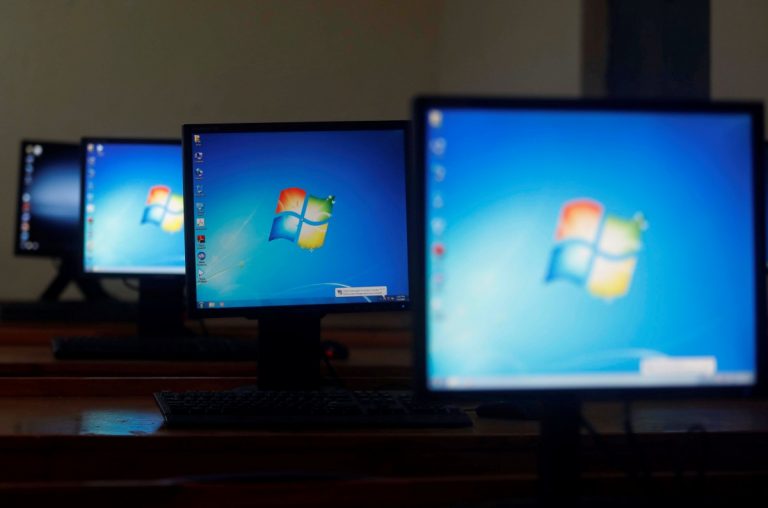
A severed marine cable has left Somalia without Internet for weeks, triggering losses for businesses, residents said, as well as adding a layer of chaos in a country where Islamist insurgents are carrying out a campaign of bombings and killings.
Somalia’s minister for posts and telecommunications Abdi Anshuur told state radio Internet to the Horn of Africa state went down a month ago after a ship cut an undersea cable connecting it to global data networks.
Businesses have had to close or improvise to remain open and university students told Reuters their educational courses had been disrupted.
Anshuur said the outage was costing Somalia the equivalent of about US$10 million in economic output.
“The night Internet went off marked the end of my daily bread,” Mohamed Nur, 22, told Reuters in the capital Mogadishu.
Nur said he now begged “tea and cigarettes from friends” after the Internet cutoff also severed his monthly income of US$500 he took in from ads he developed and placed on the video website, YouTube.
Internet outage in violence-plagued Somalia is extra headache for businesses https://t.co/sY4mJpxCGH pic.twitter.com/Heub495vzt
— Reuters World (@ReutersWorld) July 17, 2017
Somalia’s economy is still picking up slowly after a combined force of the army and an African Union peacekeeping force helped drive Islamist group al Shabaab out of Mogadishu and other strongholds.
Al Shabaab wants to topple the Western-backed government and rule according to its strict interpretation of Islamic Syariah law.
The group remains formidable and lethal, with its campaign of frequent bombings and killings a key source of significant security risk for most businesses and regular life.
Now the Internet outage potentially compounds the hardships for most firms. Most young people who say they are unable to work because of the outage spend hours idling in front of tea shops.
Mohamed Ahmed Hared, commercial manager of Somali Optical Networks (SOON), a large Internet service provider in the country, told Reuters his business was losing over a million dollars a day. He said his clients had reported a range of crippled services including passport and e-tickets printing and money remittances.

Can’t research without Google. Source: Reuters/Feisal Omar
Some students and staff at the University of Somalia in Mogadishu told Reuters their learning had been disrupted because Google, which they heavily rely on for research, was now inaccessible.
The absence of especially popular Internet sites like Facebook and YouTube was, however, cause for celebration for some in the conservative, Muslim nation.
“My wife used to be (on) YouTube or Facebook every minute,” Mohamud Osman, 45, said, adding the online activity would sometimes distract her from feeding her baby and that the habit had once forced him to try to get a divorce.
“Now I am happy … Internet is, without doubt, a necessary tool of evil.”
Liked this? Then you’ll love these…
Ethiopia shuts down Internet again to stop exam leaks
India: Internet is loving this ‘desi’ student touching his dean’s feet







